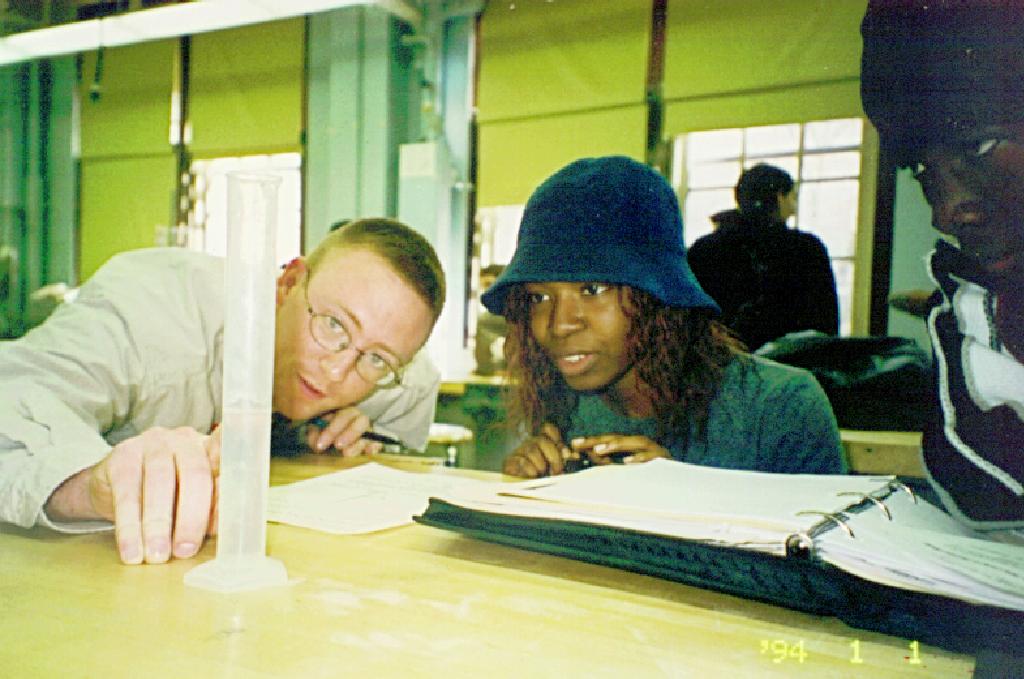|
 |
 For
Students For
Students
This page answers questions you may have about Environmental
Inquiry and points you to resources that will help you conduct environmental
science research in your classroom, schoolyard, or community.
Your first question might be, "What do you mean by inquiry?"
In Environmental Inquiry, we're referring to these steps:
- Ask scientific questions,
- Design an investigation
to look into one of these questions,
- Conduct an experiment - including
collecting, analyzing, and interpreting data
- Draw conclusions based on
the evidence you have collected,
- Present your work and get feedback from
other students, teachers, and possibly interested community groups.
Frequently asked questions
What
is Environmental Inquiry (EI)?
What do students and
teachers say about EI?
Glossary
Look
up new or confusing terms on the EI website.
Doing Your Own Research
Don't
know where to start? This website has a number of resources that can help.
If you already know what topic you are interested in but aren't sure how to
conduct your own experiment, you could start by reading some
tips for planning experiments.
If you don't have a research topic in mind, you could start
by browsing through EI's four topics: Toxicology,
Ecology, Biodegradation,
and Watersheds. Each provides background
information, resources, and ideas for experiments.
For example, if you are interested in doing a toxicology project,
you could check out suggestions for bioassay
experiments or read some completed
research reports by other students who have used our online peer review
system.
Useful Links
Browse all the
links to environmental science resources provided on the EI website.
Peer Review
Professional scientists
rely on feedback from fellow scientists as they plan their research, find funding,
and present and publish their results. This process of peer review helps scientists
think about their results in new ways, or come up with new ideas. Peer review
also helps government and private organizations decide which research projects
to fund, and which research papers to publish in scientific journals. EI's
peer review tutorial
provides more information.
After receiving
feedback from fellow students who have carried out similar types of experiments,
you may be able to improve your report. You also may find that the process
of reviewing reports by other students helps you to think differently about
your own work.
EI Websites
In order to provide
interactive web-based opportunities for students of all ages, we have created
two websites:
- The Cornell EI site you currently are visiting, which is designed for
use by high school students and teachers, and
- Our EI
site at Penn State University, which is designed for use by undergraduate
students and faculty.
|
 |

